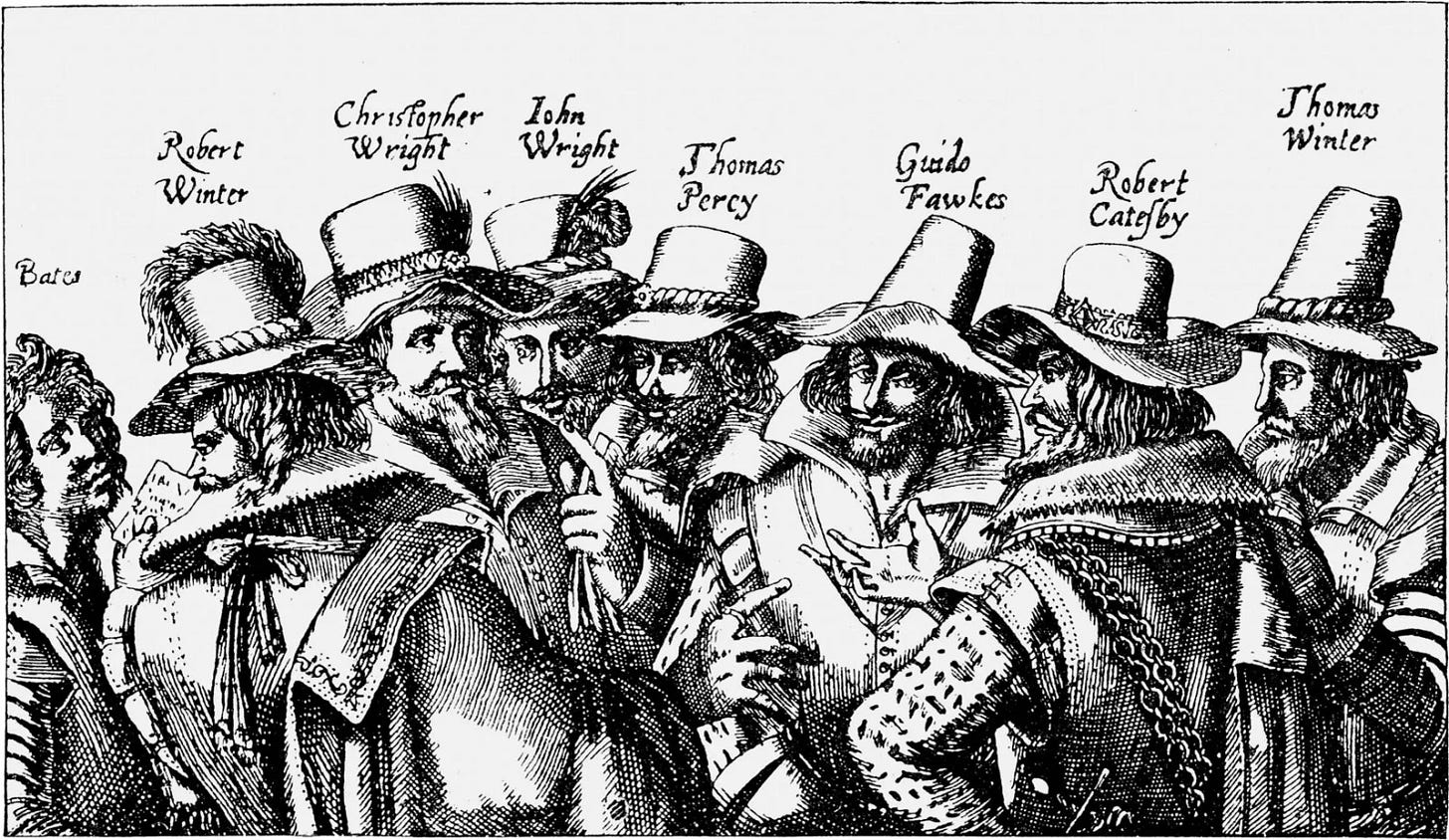I am a storyteller. Which means I love mythology. I also love history. I don’t see the difference, one from the other, except myth is the history of the inner, or consciousness, of the human individual.
I don’t like fallacies in history. Fallacies are the propaganda that has come down to us. Guy Fawkes is an excellent example of a propaganda that is hundreds of years old. This is so because of the Reformation, and its Protestants. The Protestants wanted to wield the mighty power of church and state. They were jealous of that power, and like any power machine, they don’t want to share it.
We can see that this is so, even today, in spite of our “liberal” democracies. The group in power will not let go without you prying power out of their hands.
More on that as we go along with this short history lesson. Guy Fawkes was a young man born into what we would call, an upper middle class family. His birth, in 1570, coincided with much religious upheaval throughout Europe. Born in York, England, Queen Elizabeth was on the throne, and the Protestant cause, in the Church of England, was firmly entrenched. The Puritans and other Protestants that were, shall we say, more radical, were growing in numbers. Catholics were personae non gratis. Priests were hidden in houses, and if one was a Catholic, one didn’t broadcast it. To be succinct, there was no freedom of choice when it came to religion. The Penal Laws of the 16th century essentially outlawed the Catholic Church in England.
Guy was not born a Catholic. He converted when his mother, a widow since Guy was 8, remarried. Her second husband was a Catholic. Guy converted, and, like many a converted individual, he became an extremest. Fired up with devotion, he left England to sign up with the Spanish in their war with Denmark.
A side note here, is that the Puritans that had escaped to Denmark from England, at this time decided to investigate migrating to the Americas. Yes, this is the Mayflower bunch. They saw the war with Spain approaching, ergo, that is why they got out of Denmark. By the time of the Gunpowder Plot, they were freezing in Plymouth.
Meanwhile, back in England, a few Catholics came up with a harebrained scheme to kill James I, his queen, and his son. The four main conspirators were Robert Catesby, who formed the Gun Powder Plot, Thomas Percy, Thomas Winter, and John Wright. Guy Fawkes was away in Denmark, so he was not one of the original conspirators. He was a tech guy. The plot was to come to fruition on the opening day of Parliament, 5th November, 1605.
Guy did his job. But there was a failure to keep the secret. You may reference Ben Franklin’s warning here, “Two can keep a secret if one is dead.”
The scenario was this. As Parliament opened, with the royal family in attendance, the hundreds of pounds of gunpowder placed underneath it would blow. The cover of the conspirators was then only thing that blew up. The plot was discovered. Most of the conspirators got away. Six did not.
On the 31st of January, 1606, those six were executed, through the usual means doled out to traitors: hanging, drawing and quartering.
Guy escaped the quartering whilst alive by committing suicide on the gallows. He jumped to his death. They still quartered his body.
The fallacy most have of this event is that the conspirators wanted to set up a theocracy. No, that was not their intent. Their intent was to restore Catholicism as the religion of state and monarch. What they really accomplished was to set back their cause by two hundred years.
The reason the Founders of the United State deliberately set up the no establishment clause was because of the nearly three hundred years of turmoil brought about by the religious wars in England and Europe, and, subsequently, brought to the colonies. The various flavors of Protestantism practiced in the colonies did not tolerate one another. There was very little of the “love your neighbors” going on.
I’ve seen libertarians wearing a Guy Fawkes mask. I don’t think the wearers have an idea of what this man stood for. Or, if they do, I can only surmise they stand for violence in the name of their liberty. But Guy was not for liberty. He was for establishing the old religion, which brought with it, Inquisitions, and long, drawn out conflicts with the monarchs. That doesn’t sound very libertarian to me.
The truth is, Guy was not a mastermind. He was a devoted servant of the cause, but not a leader in that cause. You might say he was a useful idiot.
I’m glad I cleared that up.
Any questions? Feel free to ask.





Excellent short history of the Gunpowder Plot !
Excellent short history of the Gunpowder Plot ! 👏🏻